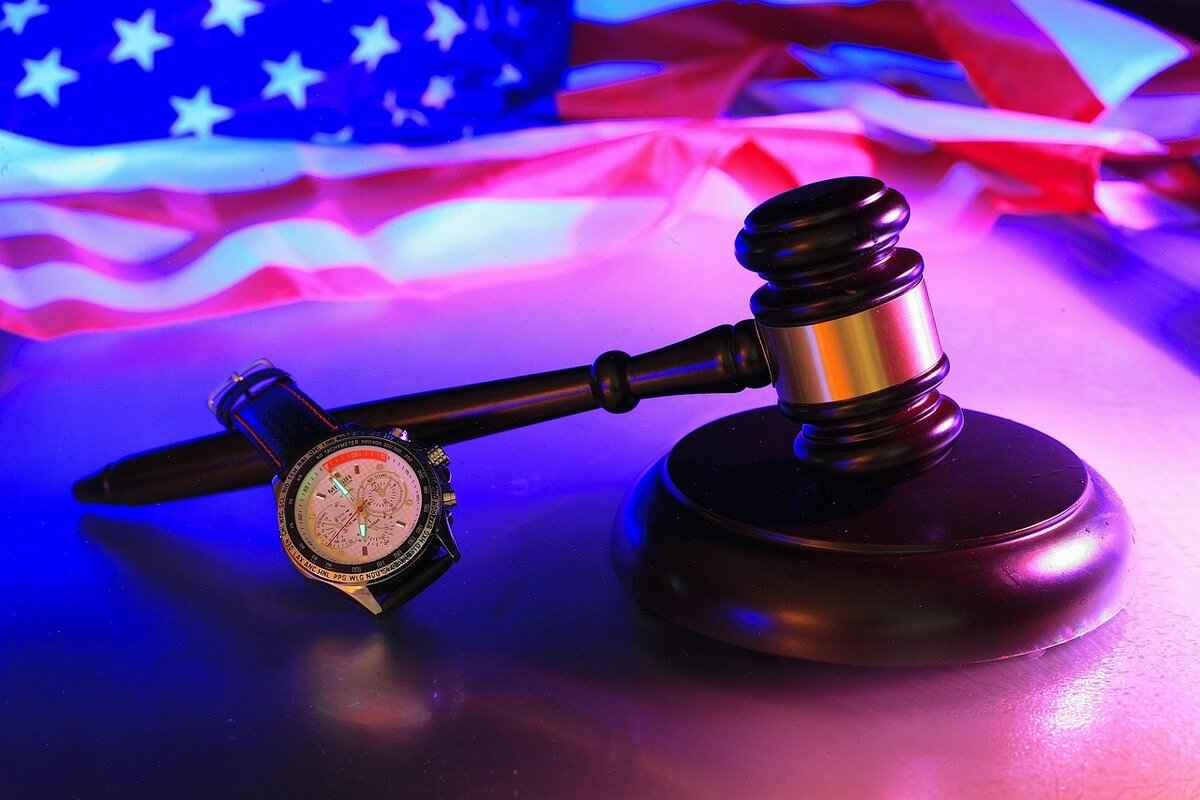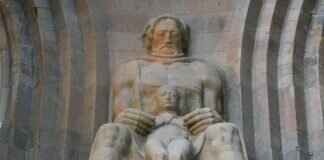This article delves into the intricate process of questioning witnesses in court, detailing the methods, strategies, and legal frameworks that govern this critical aspect of the judicial system. The questioning of witnesses is a fundamental component of legal proceedings, as it can significantly influence the outcome of a case.
The Role of Witnesses in Legal Proceedings
Witnesses serve as the backbone of many court cases, providing crucial testimony that can sway the jury’s perception. Their firsthand accounts help establish the facts of the case, making it essential for both the prosecution and defense to effectively question these individuals.
Types of Witnesses in Court
- Fact Witnesses: These witnesses testify based on their direct observations, providing essential details that help establish the case’s context.
- Expert Witnesses: Experts offer specialized knowledge and opinions, often clarifying complex issues for the jury.
- Character Witnesses: These individuals speak to the character of a party involved in the case, providing insights that can influence the jury’s judgment.
The Process of Questioning Witnesses
Questioning witnesses typically involves two main phases: direct examination and cross-examination. Each serves a distinct purpose within the courtroom environment.
Direct Examination
During direct examination, the attorney who called the witness asks questions designed to elicit favorable testimony. This phase is crucial for establishing the witness’s credibility and the facts relevant to the case.
Cross-Examination
Cross-examination allows the opposing counsel to challenge the witness’s statements. This process is essential for testing the reliability of the testimony and can often reveal inconsistencies that may undermine the witness’s credibility.
Techniques for Effective Questioning
Attorneys utilize various techniques to enhance the effectiveness of their questioning:
- Open-Ended Questions: These questions encourage witnesses to provide detailed responses, offering a broader understanding of their perspective.
- Leading Questions: Often used during cross-examination, these questions suggest a specific answer, allowing attorneys to control the narrative.
The Importance of Preparation
Preparation is vital for both attorneys and witnesses. A well-prepared witness can significantly impact the case’s outcome.
- Preparing Witnesses: Attorneys must prepare witnesses for the types of questions they will face, ensuring they understand courtroom procedures.
- Mock Trials: Conducting mock trials can help witnesses practice their testimony, building confidence and improving performance.
Legal Considerations in Witness Questioning
Legal standards govern how witnesses are questioned to ensure their rights are protected. Rules of evidence dictate what can be asked, ensuring that only relevant information is presented to the court.
- Objections and Challenges: Attorneys may raise objections during questioning to challenge the admissibility of certain questions, impacting the flow of testimony.
Impact of Technology on Witness Testimony
Advancements in technology are reshaping how witness testimony is presented. For instance:
- Video Testimonies: Recorded testimonies allow jurors to observe body language, which can influence their perception of credibility.
- Digital Evidence: Emails and social media posts can complement witness accounts, providing supporting context.
Challenges in Questioning Witnesses
Questioning witnesses can present various challenges:
- Memory Reliability: Witnesses may struggle with memory, leading to inconsistencies that attorneys must address.
- Emotional Factors: A witness’s emotional state can impact their responses, necessitating a sensitive approach to questioning.
In conclusion, the process of questioning witnesses in court is multifaceted and requires a blend of legal knowledge, strategic thinking, and interpersonal skills. Understanding the nuances of this process can significantly enhance the effectiveness of legal representation.
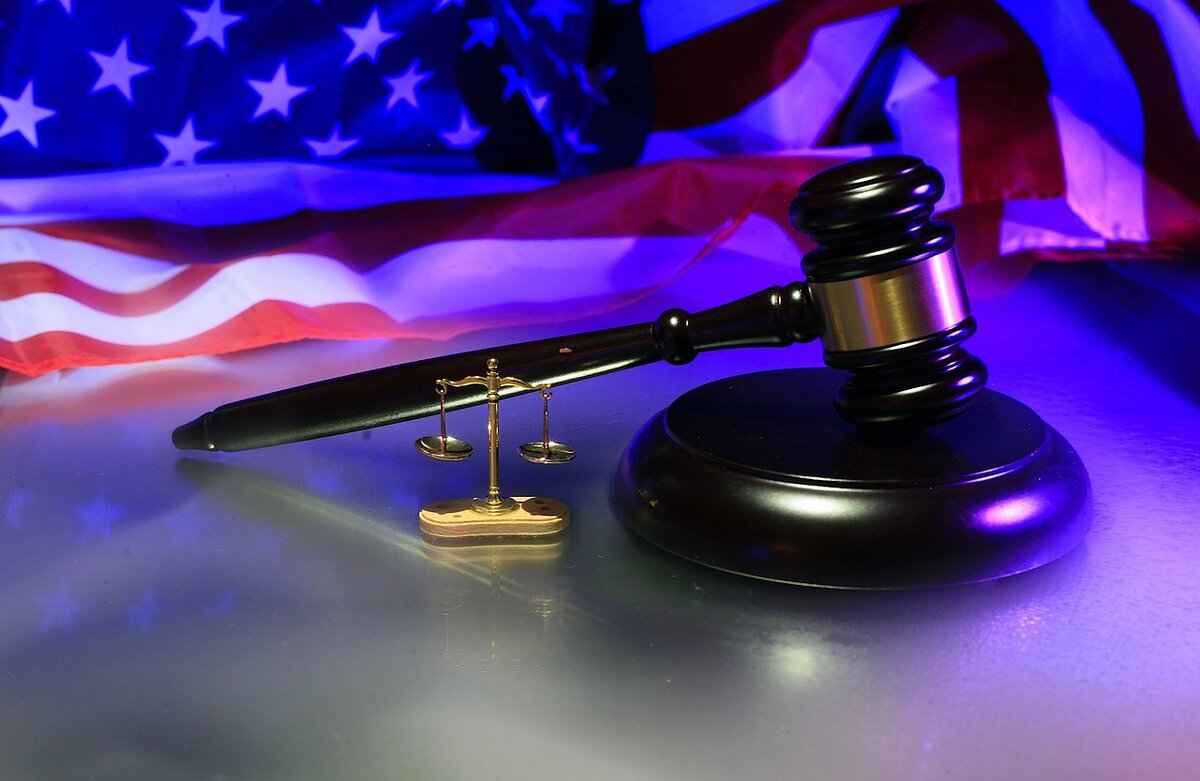
The Role of Witnesses in Legal Proceedings
Witnesses are a fundamental component of the judicial system, serving as the bridge between the facts of a case and the court’s understanding of those facts. Their testimony can significantly sway the outcome of legal proceedings, making it essential to grasp their role in the courtroom.
In legal proceedings, witnesses provide firsthand accounts that help establish the truth of an event. Their insights can clarify complexities, fill gaps in evidence, and offer perspectives that may not be readily apparent through documents or physical evidence alone. This makes the role of witnesses not just important but pivotal.
- Fact Witnesses: These individuals testify based on their direct observations. Their accounts are crucial for laying down the factual groundwork of a case.
- Expert Witnesses: These witnesses bring specialized knowledge to the table, offering opinions that can help jurors understand complicated issues. Their expertise often makes complex information more digestible.
- Character Witnesses: These individuals speak to the character and credibility of a party involved in the case, providing context that may influence the jury’s perception.
The questioning of witnesses is a structured process that typically includes direct examination and cross-examination. Each phase serves a distinct purpose in the courtroom.
- Direct Examination: This is the initial phase where the attorney who called the witness asks questions designed to elicit favorable testimony. The aim is to establish the witness’s credibility and present key facts.
- Cross-Examination: This phase allows opposing counsel to challenge the witness’s statements, testing their reliability and uncovering any contradictions. It is a critical opportunity to scrutinize the testimony presented during direct examination.
Attorneys utilize various techniques to maximize the value of witness testimony. These include:
- Open-Ended Questions: These questions encourage witnesses to provide detailed narratives, offering a fuller picture of their experiences.
- Leading Questions: Often used during cross-examination, leading questions guide witnesses toward specific answers, helping to control the narrative.
Preparation is vital for both attorneys and witnesses. A well-prepared witness is more likely to provide clear and credible testimony. Attorneys often engage in:
- Mock Trials: These practice sessions help witnesses familiarize themselves with courtroom procedures and the types of questions they may face.
- Thorough Briefing: Attorneys must ensure witnesses understand the significance of their testimony and the importance of honesty and clarity.
Legal standards govern the methods used to question witnesses, ensuring their rights are upheld while allowing attorneys to present their cases effectively. Key considerations include:
- Rules of Evidence: These dictate what can be asked and ensure that only relevant information is presented.
- Objections: Attorneys may raise objections to challenge the admissibility of certain questions, which can affect the flow of testimony.
Modern technology has transformed how witness testimony is presented. Innovations such as:
- Video Testimonies: These allow jurors to observe not just the words but also the demeanor of witnesses, which can impact credibility assessment.
- Digital Evidence: Emails, texts, and social media posts can complement witness accounts, providing additional context and supporting claims.
Despite their importance, questioning witnesses can present challenges. Factors such as:
- Memory Reliability: Witnesses may struggle with recalling details accurately, which can lead to inconsistencies.
- Emotional Factors: The emotional state of a witness can affect their responses, necessitating a sensitive approach by attorneys.
In the realm of legal proceedings, the role of witnesses is indispensable. Their testimonies can significantly influence the outcome of a case, providing the court with essential information and perspectives. Understanding the different types of witnesses is crucial for grasping their unique contributions to the judicial process.
Witnesses can be categorized into various types, each serving distinct functions and offering unique insights. The primary categories include:
- Expert Witnesses: These individuals possess specialized knowledge, skills, or experience in a particular field relevant to the case. Expert witnesses are often called upon to provide their professional opinions on complex issues, such as medical conditions, engineering principles, or financial matters. Their testimony can help juries and judges understand intricate subjects that require a level of expertise beyond that of the average person.
- Lay Witnesses: Unlike expert witnesses, lay witnesses provide testimony based on their personal observations and experiences. They may recount events they witnessed or share their perceptions related to the case. Lay witnesses are crucial for establishing the factual basis of a case, as their firsthand accounts can provide context and clarity.
- Character Witnesses: These witnesses testify about the character and reputation of a party involved in the case, often the defendant. Their role is to provide insight into the individual’s behavior, morals, and overall character, which can influence the jury’s perception. Character witnesses can be pivotal in cases where the defendant’s character is a significant consideration.
- Fact Witnesses: Fact witnesses, often synonymous with lay witnesses, provide direct evidence regarding specific events or actions related to the case. Their testimony is based on what they have seen, heard, or experienced, making them vital for establishing the facts surrounding the case.
Each type of witness serves a critical function in the courtroom, contributing to the overall narrative of the case. Their testimonies can corroborate evidence, clarify misunderstandings, and provide a human element that resonates with juries.
The inclusion of various types of witnesses enriches the judicial process. For instance, while expert witnesses may clarify technical aspects, lay witnesses can provide relatable accounts that evoke empathy. This blend of perspectives ensures that the jury receives a well-rounded view of the case, aiding in their decision-making process.
Despite their importance, witnesses can face challenges that may affect their testimony. Factors such as memory reliability, emotional distress, and potential biases can impact how effectively they convey their experiences. It is essential for attorneys to prepare witnesses thoroughly, helping them understand the significance of their testimony and the types of questions they may encounter.
In conclusion, understanding the different types of witnesses in court is vital for grasping their roles within the legal system. Each category of witness brings unique insights and credibility, contributing to the pursuit of justice. By recognizing the distinct functions of expert, lay, character, and fact witnesses, legal professionals can better navigate the complexities of courtroom proceedings.
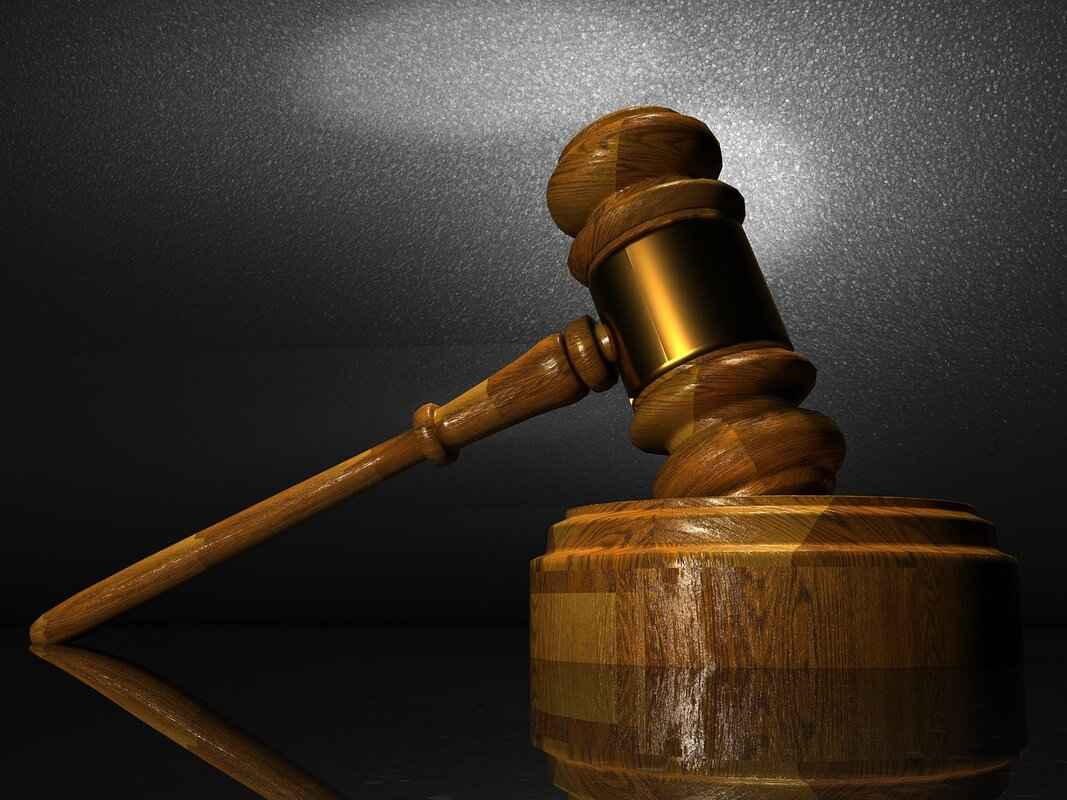
Fact Witnesses
are individuals who provide testimony based on their direct observations related to a case. Their firsthand accounts are not only vital for establishing the facts but also for providing essential context that can influence the outcome of legal proceedings. In this section, we will delve deeper into the significance of fact witnesses, their roles, and the challenges they may face during testimony.
The importance of fact witnesses cannot be overstated. They serve as the backbone of many legal cases, offering insights that can corroborate or contradict other evidence presented in court. For example, in a personal injury case, a fact witness may describe the events leading up to an accident, detailing what they saw, heard, and experienced. This testimony can be pivotal in establishing liability and determining damages.
Types of Observations
- Direct Observations: These are firsthand accounts where the witness directly sees or hears an event unfold.
- Indirect Observations: Sometimes, witnesses may relay information they heard from others, which can be less reliable.
Fact witnesses are typically categorized as lay witnesses, meaning they do not possess specialized knowledge or expertise in a particular field. Their credibility often hinges on their ability to recount events accurately and consistently. During legal proceedings, attorneys aim to highlight the reliability of these witnesses through careful questioning strategies.
Challenges Faced by Fact Witnesses
While fact witnesses play a crucial role, they also face several challenges. Memory reliability can be a significant issue; human memory is not infallible, and witnesses may struggle to recall details accurately. Factors such as stress, time elapsed since the event, and personal biases can affect their recollections.
Furthermore, the emotional state of a witness can impact their performance on the stand. Attorneys must approach questioning with sensitivity, ensuring that witnesses feel comfortable and supported. This can help mitigate anxiety and encourage clearer, more accurate testimony.
Preparation for Fact Witnesses
Preparation is essential for fact witnesses to provide effective testimony. Attorneys often conduct pre-trial meetings to familiarize witnesses with courtroom procedures and the types of questions they may face. This preparation can significantly enhance a witness’s confidence and clarity during their testimony.
In some cases, attorneys may conduct mock trials, allowing witnesses to practice their testimony in a controlled environment. This not only builds confidence but also helps identify potential weaknesses in their accounts, allowing for further refinement before the actual trial.
Legal Standards Governing Fact Witnesses
There are strict legal standards that govern how fact witnesses are questioned in court. The rules of evidence dictate what can be asked and how testimony is presented. These rules ensure that only relevant and admissible information is shared with the jury, protecting the integrity of the judicial process.
Attorneys may raise objections during witness questioning to challenge the admissibility of certain statements or questions. This can shape the narrative presented to the jury and influence their perception of the witness’s credibility.
Conclusion
In summary, fact witnesses are integral to the judicial process, providing essential testimony that helps establish the facts of a case. Their firsthand observations can significantly impact the outcome of legal proceedings. By understanding the role and challenges faced by fact witnesses, legal professionals can better prepare their cases and ensure that justice is served.
Expert Witnesses
play a critical role in legal proceedings by providing specialized knowledge and opinions that help elucidate complex issues for the court. Their expertise can significantly influence the jury’s understanding of technical matters that are often beyond the grasp of laypersons. This article delves into the essential functions of expert witnesses, the qualifications they must possess, and the impact of their testimony in court.
Expert witnesses are individuals with specialized training, education, or experience in a particular field relevant to a case. They are called upon to provide their expert opinions based on their knowledge, which can range from scientific and medical fields to engineering and finance. Their testimony aims to clarify complex subjects, helping juries make informed decisions.
To be deemed an expert witness, individuals must meet specific qualifications, including:
- Educational Background: A relevant degree or certification in their field.
- Professional Experience: Significant experience that demonstrates their expertise.
- Publications and Research: Contributions to academic journals or industry publications can bolster their credibility.
Attorneys often engage expert witnesses during the pre-trial phase. This involves:
- Identifying the Need: Determining whether expert testimony is necessary to support the case.
- Selecting the Right Expert: Choosing an expert whose qualifications align with the case’s specific needs.
- Preparing for Testimony: Collaborating with the expert to ensure they understand the case and can articulate their opinions clearly.
There are various types of expert witnesses, including:
- Medical Experts: Provide insights on health-related issues, injuries, and medical standards.
- Forensic Experts: Analyze evidence such as DNA, fingerprints, or digital data.
- Financial Experts: Offer opinions on economic matters, valuations, and financial practices.
The testimony of expert witnesses can have a profound impact on the outcome of a case. By providing clarity on intricate subjects, they help jurors grasp essential concepts that may otherwise be confusing. Their ability to present information in an understandable manner is crucial in persuading the jury. Furthermore, expert witnesses can:
- Enhance the credibility of the case.
- Provide unbiased, factual information.
- Assist in establishing a standard of care or practice within the relevant field.
While expert witnesses are invaluable, they also face challenges, such as:
- Cross-Examination: Opposing counsel may challenge their qualifications or opinions.
- Bias Allegations: Experts may be perceived as biased if they have a history of working with one side.
- Complexity of Information: Simplifying complex information without losing accuracy can be difficult.
In summary, expert witnesses are essential components of the judicial system, providing critical insights that help juries navigate complex issues. Their qualifications, the process of engaging them, and the impact of their testimony are all vital aspects of legal proceedings. By understanding the role of expert witnesses, attorneys can better prepare their cases and ensure that justice is served.
The Process of Questioning Witnesses
Questioning witnesses in court is a critical component of the judicial process, requiring a structured approach to ensure that the testimony provided is both relevant and reliable. This process is typically divided into two main phases: direct examination and cross-examination. Each phase serves distinct purposes and employs different strategies to achieve the desired outcomes.
Direct Examination is the initial phase where the attorney who called the witness poses questions to elicit favorable testimony. The primary goal during this stage is to establish the credibility of the witness and to present facts that support the case. Attorneys often use open-ended questions to allow witnesses to share their narratives in a detailed manner, providing the court with a comprehensive understanding of the events in question. For instance, instead of asking, “Did you see the accident?” an attorney might ask, “Can you describe what you observed on the day of the accident?” This encourages the witness to provide a fuller account of their experience.
On the other hand, Cross-Examination is conducted by the opposing counsel and serves to challenge the testimony provided during direct examination. The purpose of this phase is to test the reliability and consistency of the witness’s statements, often revealing any contradictions or biases. Here, attorneys may utilize leading questions, which suggest a particular answer, to control the narrative and highlight inconsistencies. For example, an attorney might ask, “Isn’t it true that you were not wearing your glasses at the time of the incident?” This method aims to undermine the witness’s credibility and cast doubt on their testimony.
Effective questioning techniques are essential for both direct and cross-examination. Attorneys often employ a combination of strategies, including strategic pauses to allow witnesses time to think before responding, which can lead to more thoughtful and accurate answers. Thorough preparation is also vital; attorneys must prepare their witnesses for the types of questions they will encounter, ensuring they understand courtroom procedures and the importance of providing clear, honest responses.
Legal considerations play a significant role in the questioning process. The rules of evidence govern what can be asked during witness questioning, ensuring that only relevant and admissible information is presented to the court. Attorneys must also be prepared to raise objections when necessary, challenging the admissibility of certain questions or answers to maintain the integrity of the testimony.
Furthermore, advancements in technology are transforming the way witness testimony is presented. Video testimonies can now be used in court, allowing jurors to observe the witness’s body language and demeanor, which can significantly influence their perception of credibility. Additionally, digital evidence, such as emails and social media posts, can complement witness testimony, providing context and supporting claims made during questioning.
Despite the structured nature of witness questioning, challenges remain. Issues such as memory reliability can affect the accuracy of witness testimony. Witnesses may struggle to recall details accurately, leading to inconsistencies. Attorneys must be adept at navigating these challenges, approaching questioning with sensitivity to emotional factors that may impact a witness’s responses.
In summary, the process of questioning witnesses in court involves a meticulous approach that balances the need for thorough testimony with the legal standards that govern courtroom procedures. By employing effective questioning techniques and preparing witnesses adequately, attorneys can significantly influence the outcome of a case.
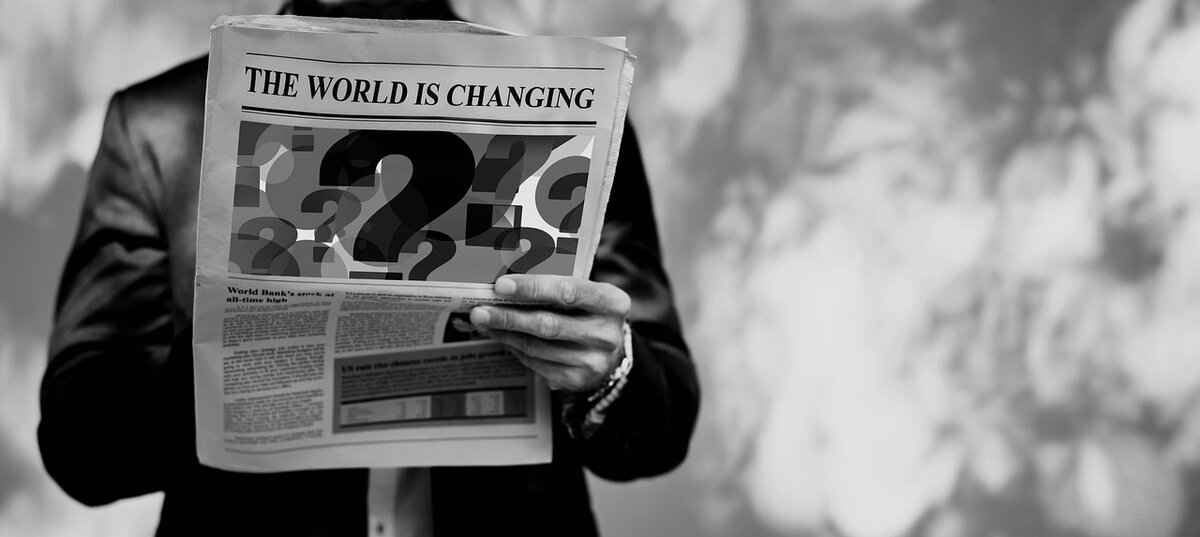
Direct Examination
In the courtroom, the process of questioning witnesses is a critical component of legal proceedings. One of the most significant stages in this process is , where the attorney who has called the witness seeks to elicit testimony that supports their case. This phase is essential not only for establishing the facts but also for building the witness’s credibility in the eyes of the judge and jury.
During direct examination, attorneys utilize a variety of techniques to guide the witness in providing clear and coherent testimony. The primary objective is to create a narrative that aligns with the attorney’s case theory. This is achieved by asking open-ended questions that allow the witness to elaborate on their experiences and observations. For instance, instead of asking, “Did you see the defendant at the scene?” an attorney might ask, “Can you describe what you saw on the day of the incident?” This approach encourages the witness to share more detailed information, which can be pivotal for the case.
Moreover, establishing the witness’s credibility is paramount during direct examination. Attorneys often begin by asking preliminary questions that establish the witness’s background, qualifications, and relationship to the case. This helps to build a foundation of trust with the jury. For example, an attorney might ask an expert witness about their educational background and relevant experience before delving into the specifics of their testimony.
Another crucial aspect of direct examination is the attorney’s ability to remain composed and adaptable. The attorney must listen carefully to the witness’s responses and be prepared to adjust their line of questioning based on the information provided. This responsiveness can help clarify any ambiguities and enhance the overall quality of the testimony.
| Key Techniques in Direct Examination | Description |
|---|---|
| Open-Ended Questions | Encourages detailed responses from the witness. |
| Establishing Credibility | Building trust with the jury through background questions. |
| Active Listening | Allows for adjustments in questioning based on the witness’s answers. |
It is also important to note that preparation is key to a successful direct examination. Attorneys often conduct thorough briefings with their witnesses to ensure they understand the types of questions they will face and the importance of providing honest and clear answers. This preparation can include mock examinations, where witnesses practice their testimony in a controlled setting, allowing them to become familiar with courtroom dynamics.
Additionally, the attorney must be mindful of the legal framework surrounding direct examination. The rules of evidence dictate what can be asked and how it should be presented. Attorneys must ensure that their questions comply with these rules to avoid objections from opposing counsel that could disrupt the flow of testimony.
In summary, direct examination is a pivotal stage in the courtroom process that requires careful planning, strategic questioning, and effective communication. By employing various techniques and ensuring thorough preparation, attorneys can maximize the impact of their witness’s testimony, ultimately contributing to the overall strength of their case.
Cross-Examination
is a critical component of the courtroom process, serving as a powerful tool for attorneys to challenge the credibility of witnesses. This phase of witness questioning is designed to scrutinize the testimony provided during direct examination, ensuring that the information presented is both reliable and consistent.
During cross-examination, the attorney representing the opposing side has the opportunity to ask questions that may expose weaknesses in the witness’s statements. This method is essential in testing the veracity of the testimony and can often lead to the revelation of contradictions or inconsistencies that could undermine the case’s strength.
- Purpose of Cross-Examination: The primary goal of cross-examination is to challenge the witness’s credibility and the accuracy of their testimony. By doing so, the attorney aims to create doubt in the minds of the jury regarding the reliability of the witness’s account.
- Techniques Used: Attorneys utilize various techniques during cross-examination, including leading questions, which suggest a specific answer, and strategic pauses that allow for reflection and emphasize critical points.
- Impact on Jury Perception: The effectiveness of cross-examination can significantly influence the jury’s perception of the case. A well-executed cross-examination can lead jurors to question the integrity of a witness, potentially swaying their opinions and decisions.
In addition to challenging the witness’s reliability, cross-examination also serves to clarify ambiguities and highlight important details that may have been overlooked during direct examination. By carefully crafting questions, attorneys can guide witnesses into revealing information that may support their case or weaken the opposing side’s arguments.
Moreover, cross-examination can be a tense and dramatic moment in a trial. Witnesses may become defensive or flustered when faced with pointed questions, which can further impact their credibility. The attorney’s ability to maintain composure and control the narrative during this phase is crucial.
It’s important to note that the rules governing cross-examination are set forth by the legal system to ensure fairness and protect the rights of witnesses. Attorneys must adhere to these guidelines, which dictate the scope and manner of questioning. For instance, questions must be relevant to the case at hand and should not lead to harassment or undue stress for the witness.
In conclusion, cross-examination is an essential element of the judicial process, providing attorneys with the means to challenge and dissect witness testimony. By employing strategic questioning techniques, attorneys can effectively test the reliability of a witness’s statements and ultimately influence the outcome of a case.
Techniques for Effective Questioning
In the realm of legal proceedings, the art of questioning witnesses is a critical skill that can significantly influence the outcome of a case. Attorneys utilize a variety of techniques to ensure that their questioning is not only effective but also strategically sound. Understanding these techniques can provide insight into how attorneys elicit the most informative responses from witnesses.
One of the primary techniques employed by attorneys is the use of open-ended questions. These questions encourage witnesses to elaborate on their thoughts and experiences, providing a richer context for their testimony. For example, instead of asking, “Did you see the defendant at the scene?” an attorney might ask, “Can you describe what you saw when you arrived at the scene?” This approach allows witnesses to share details that may not have been anticipated, uncovering valuable information that could be pivotal for the case.
In contrast, leading questions are often used during cross-examination. These questions suggest a particular answer and are designed to guide the witness’s response. For instance, an attorney might ask, “Isn’t it true that you were not paying attention when the incident occurred?” This technique can be effective in highlighting inconsistencies in a witness’s testimony, allowing the attorney to challenge the credibility of the witness’s account.
Another powerful technique is the use of strategic pauses. By allowing moments of silence during questioning, attorneys can create a sense of anticipation and encourage witnesses to fill the silence with additional information. This tactic can lead to unexpected revelations, as witnesses may provide further details when prompted by silence, revealing insights that could be crucial to the case.
Attorneys also employ clarifying questions to ensure that the testimony is understood correctly. These questions help to clarify ambiguous statements and allow the attorney to delve deeper into specific aspects of the witness’s account. For instance, asking “What do you mean by that?” can prompt the witness to provide a more comprehensive explanation, enhancing the clarity of their testimony.
Establishing a good rapport with witnesses is essential for effective questioning. Attorneys often take time to build rapport before the questioning process begins, making witnesses feel comfortable and valued. This can lead to more open and honest responses, as witnesses are more likely to share information freely when they feel at ease.
In some cases, attorneys may use visual aids to enhance their questioning. Charts, diagrams, or photographs can help witnesses recall details and provide context to their testimony. For example, showing a map of the incident location can help witnesses better explain their observations, making their testimony more impactful.
Finally, effective attorneys are adept at adapting their questioning style based on the witness’s responses. They must be flexible, ready to change their line of questioning to pursue new avenues of inquiry that may arise during the testimony. This adaptability can lead to discovering important information that was not initially anticipated.
In conclusion, the techniques for effective questioning in court are multifaceted and require a blend of skill, strategy, and empathy. By employing open-ended questions, leading questions, strategic pauses, and other methods, attorneys can maximize the quality of witness testimony, ultimately influencing the judicial outcome.
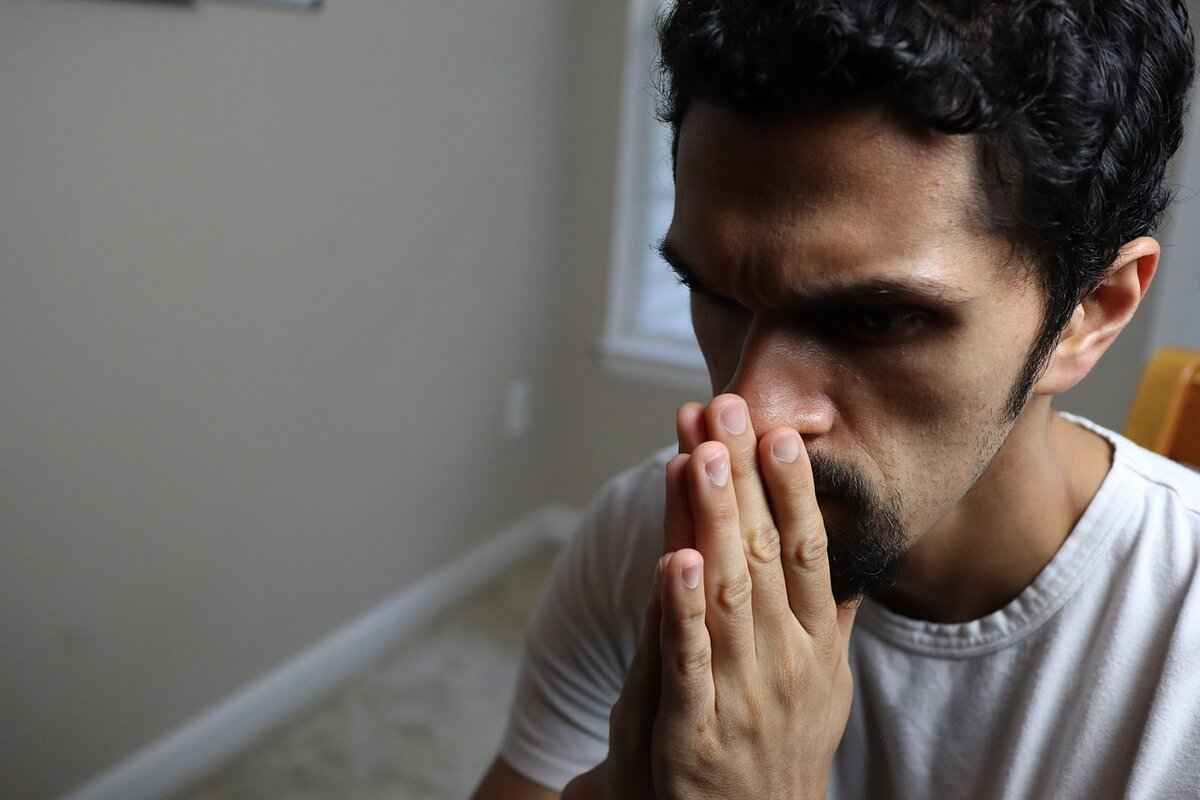
Open-Ended Questions
In the intricate realm of courtroom procedures, the method of questioning witnesses is a pivotal aspect that can significantly influence the outcome of a trial. One of the most effective techniques employed by attorneys is the use of . These questions are designed to elicit detailed responses from witnesses, facilitating a deeper understanding of their perspectives and the events surrounding the case.
Open-ended questions are inquiries that cannot be answered with a simple “yes” or “no.” Instead, they require the witness to provide a more elaborate response, which can reveal critical information. For example, rather than asking, “Did you see the accident?” an attorney might ask, “Can you describe what you observed during the accident?” This approach encourages witnesses to recount their experiences in their own words, often leading to more comprehensive and nuanced testimonies.
The advantages of using open-ended questions are manifold:
- Encouragement of Narrative Responses: By allowing witnesses to share their stories, attorneys can gather richer details that might not emerge through closed questions.
- Reduction of Suggestibility: Open-ended questions minimize the risk of suggesting answers to witnesses, thereby preserving the integrity of their testimony.
- Enhanced Engagement: When witnesses feel that their input is valued, they are more likely to engage fully in the questioning process, leading to a more effective examination.
Moreover, open-ended questions play a crucial role in establishing the credibility of a witness. When a witness is able to articulate their thoughts and feelings about an event, it not only provides the court with more information but also helps to build a rapport between the witness and the jury. This connection can be vital in persuading jurors to view the testimony favorably.
However, the effectiveness of open-ended questions relies heavily on the skill of the attorney conducting the examination. Attorneys must be adept at listening and following up on the witness’s responses with additional questions that delve deeper into the subject matter. This technique not only uncovers further details but also demonstrates to the jury the thoroughness of the witness’s account.
In contrast, leading questions, which suggest a specific answer, can be employed during cross-examination to challenge the credibility of a witness. While these questions have their place, they often do not yield the same depth of information as open-ended inquiries. Thus, a balanced approach that incorporates both types of questioning can be beneficial in presenting a well-rounded case.
In conclusion, the use of open-ended questions in witness examination is a powerful tool in the legal arsenal. By fostering a dialogue that encourages detailed responses, attorneys can gain invaluable insights into the case. This method not only enhances the quality of testimony but also contributes to a more engaging and informative courtroom experience. As the legal landscape continues to evolve, mastering the art of questioning will remain a cornerstone of effective advocacy.
Leading Questions
In the realm of courtroom procedures, witness questioning is a critical component that can significantly influence the outcome of a case. Among the various techniques employed by attorneys, play a pivotal role, particularly during the cross-examination phase. This article delves into the intricacies of leading questions, their strategic use, and their impact on witness testimony.
A leading question is designed to guide the respondent towards a particular answer, often suggesting a specific response within the question itself. For instance, asking, “You saw the defendant at the scene of the crime, didn’t you?” implicitly directs the witness to affirm the statement. This technique is particularly effective in cross-examination, where the goal is to challenge the credibility of the witness and control the narrative.
During cross-examination, attorneys aim to uncover inconsistencies and weaknesses in the witness’s testimony. By employing leading questions, lawyers can:
- Control the Narrative: Leading questions allow attorneys to steer the conversation in a direction that supports their case theory.
- Highlight Inconsistencies: By framing questions that point out contradictions in the witness’s previous statements, attorneys can undermine the witness’s reliability.
- Establish Facts: These questions can help solidify key facts that support the attorney’s argument, making it easier for the jury to follow the line of reasoning.
The strategic use of leading questions requires careful consideration. Attorneys must balance their approach to avoid appearing overly aggressive or manipulative, which could alienate the jury. Some effective strategies include:
- Preparation: Attorneys often prepare by reviewing prior statements made by the witness to identify potential inconsistencies that can be highlighted through leading questions.
- Timing: Knowing when to deploy leading questions is crucial. They are most effective after establishing a rapport during direct examination or when the witness seems uncertain.
- Clarity and Simplicity: Leading questions should be straightforward, minimizing confusion and ensuring the witness understands exactly what is being asked.
While leading questions are a powerful tool, they are subject to legal scrutiny. In many jurisdictions, leading questions are generally permissible during cross-examination but may be restricted during direct examination. Attorneys must be aware of the rules of evidence governing their use to avoid objections and ensure the admissibility of testimony.
Despite their effectiveness, leading questions can present challenges. For example:
- Potential for Backfire: If a witness strongly disagrees with a leading question, it can lead to unexpected outcomes that may harm the attorney’s case.
- Jury Perception: Overuse of leading questions can create a perception of manipulation, potentially damaging the attorney’s credibility and the witness’s reliability.
In summary, leading questions are an essential aspect of witness questioning in court, particularly during cross-examination. When used effectively, they can help attorneys control the narrative, highlight inconsistencies, and establish crucial facts. However, the strategic application of this technique requires careful consideration and a thorough understanding of legal frameworks to ensure its efficacy and adherence to courtroom protocols.
The Importance of Preparation
in legal proceedings cannot be overstated. Preparation is essential for both attorneys and witnesses. Thorough preparation can significantly impact the effectiveness of witness testimony and the overall outcome of the case. This article delves into the various aspects of preparation that contribute to successful courtroom testimony.
When it comes to attorneys, preparation involves several critical components. First and foremost, attorneys must familiarize themselves with the details of the case, including evidence, witness backgrounds, and relevant legal precedents. This comprehensive understanding allows attorneys to formulate effective questioning strategies during both direct and cross-examination.
Witness preparation is equally vital. Witnesses must be briefed on courtroom procedures, the types of questions they might encounter, and the importance of providing clear and honest responses. Attorneys often conduct meetings with witnesses to discuss the facts of the case, review potential questions, and address any concerns the witness may have. This process not only builds confidence but also enhances the reliability of the testimony.
One effective method of preparing witnesses is through mock trials. These simulated court sessions provide witnesses with a safe environment to practice their testimony. By engaging in role-playing scenarios, witnesses can become accustomed to the courtroom atmosphere, learn to manage their nerves, and refine their delivery. Mock trials can also help attorneys identify any weaknesses in the witness’s testimony that need to be addressed before the actual trial.
In addition to witness preparation, attorneys must also prepare for the unexpected. Courtroom dynamics can change rapidly, and being adaptable is crucial. Attorneys should anticipate potential objections from opposing counsel and prepare counterarguments. This level of preparedness ensures that the attorney can maintain control over the narrative and effectively advocate for their client.
Furthermore, the importance of legal research cannot be overlooked. Attorneys must stay updated on changes in laws and regulations that may affect their case. This knowledge not only aids in formulating questions but also helps in understanding the legal framework within which the witness will be questioned.
Another significant aspect of preparation involves understanding the emotional state of the witness. Witnesses may experience anxiety or stress when testifying, which can affect their performance. Attorneys should approach their witnesses with empathy, providing reassurance and support. This emotional preparation can help witnesses feel more comfortable, allowing them to present their testimony more effectively.
Effective communication is also a crucial element of preparation. Attorneys must ensure that witnesses understand the importance of their role in the trial and the impact their testimony can have on the case. Clear communication fosters a collaborative atmosphere between the attorney and the witness, enhancing the overall quality of the testimony.
In summary, the preparation process is multifaceted and requires careful attention to detail. From understanding the case and conducting mock trials to addressing emotional factors and maintaining effective communication, every aspect plays a vital role in ensuring that witness testimony is impactful and credible. The outcome of a case can hinge on the quality of preparation, making it an indispensable part of the legal process.
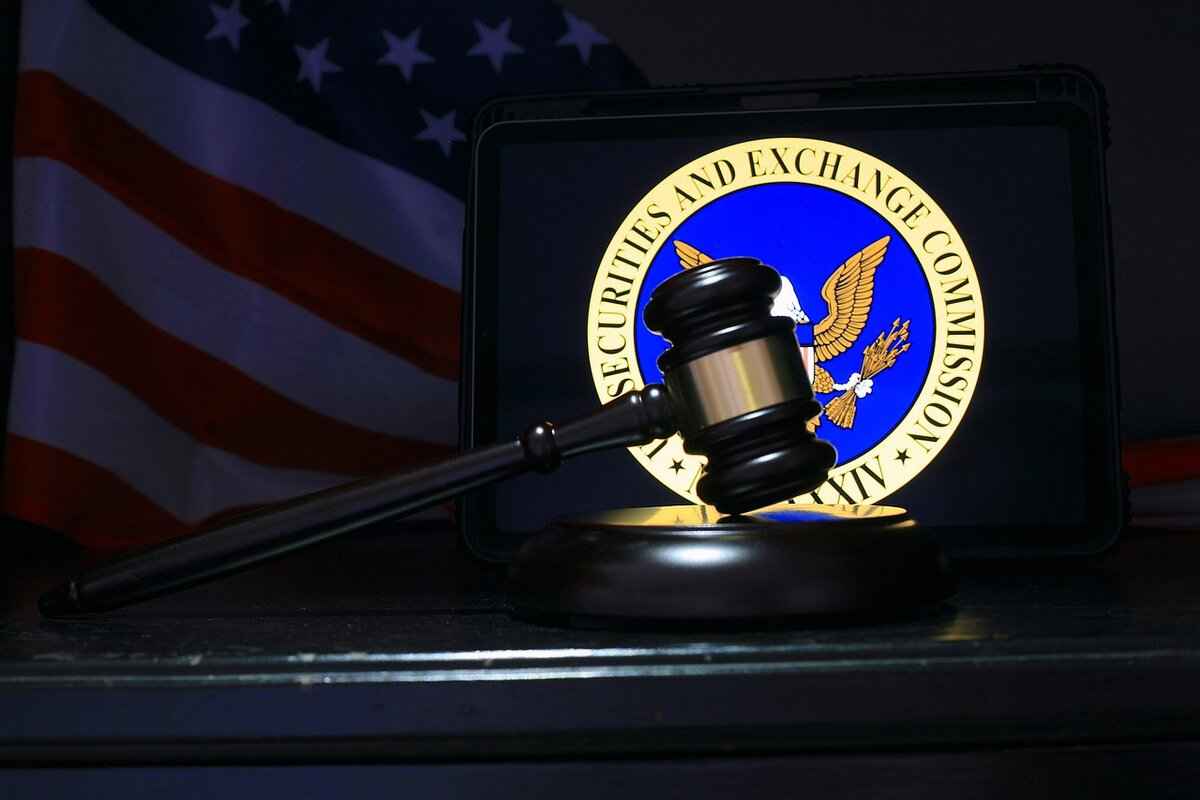
Preparing Witnesses
In the realm of legal proceedings, the role of witnesses is indispensable. They provide firsthand accounts that can significantly sway the jury’s perception and the overall outcome of a case. For this reason, is a crucial task for attorneys. This preparation goes beyond mere familiarity with the case; it involves a comprehensive understanding of courtroom dynamics, the types of questions they may face, and the importance of delivering clear and honest responses.
Witnesses often enter the courtroom with little to no experience in legal matters. Therefore, it is essential for attorneys to explain various courtroom procedures. This includes outlining the roles of different participants, such as judges, attorneys, and jurors, as well as the sequence of events during a trial. By demystifying the courtroom environment, witnesses can feel more at ease, allowing them to focus on their testimony.
Witnesses should be prepared for various types of questions that can arise during both direct and cross-examination. Attorneys typically prepare witnesses for:
- Open-Ended Questions: These questions allow witnesses to elaborate on their observations and experiences.
- Leading Questions: Often used during cross-examination, these questions suggest a specific answer and can challenge the witness’s credibility.
- Clarifying Questions: These aim to ensure that the witness’s statements are understood correctly and to clarify any ambiguities.
Witnesses must understand that their credibility hinges on the clarity and honesty of their responses. Any hint of deception or inconsistency can undermine their testimony and affect the case’s outcome. Attorneys should emphasize the significance of maintaining composure and integrity while answering questions. This includes:
- Being honest, even if the truth may not favor their side.
- Taking a moment to think before answering, to ensure accuracy.
- Admitting when they do not know the answer to a question.
One effective strategy for preparing witnesses is conducting mock trials. This simulated environment allows witnesses to practice their testimony in a controlled setting, helping them become familiar with the types of questions they may encounter. Mock trials can also help identify potential weaknesses in their testimony, allowing for further refinement before the actual court appearance.
Witnesses may experience anxiety or emotional distress when testifying, which can impact their performance. Attorneys should be sensitive to these emotional factors and provide support throughout the preparation process. Techniques such as relaxation exercises or breathing techniques can help witnesses manage their stress levels, enabling them to deliver their testimony more effectively.
It is vital for attorneys to remind witnesses of the legal and ethical standards governing testimony. Witnesses should be aware of the importance of truthfulness and the legal ramifications of perjury. Furthermore, attorneys should ensure that witnesses understand their rights during the questioning process, including the right to consult with their attorney if they feel uncomfortable with a particular question.
In summary, the preparation of witnesses is a multifaceted process that requires careful attention to detail. By equipping witnesses with knowledge about courtroom procedures, the types of questions they may face, and the importance of clear and honest communication, attorneys can enhance the effectiveness of their testimony. This preparation not only benefits the case at hand but also fosters a more transparent and fair judicial process.
Mock Trials
serve as an invaluable tool in the preparation of witnesses for their roles in court. These simulated court proceedings allow witnesses to practice their testimony in a safe and controlled environment. By engaging in mock trials, witnesses can familiarize themselves with the courtroom setting, legal terminology, and the types of questions they may encounter during actual trials. This preparatory process is essential for building their confidence and enhancing their performance.
During a mock trial, witnesses are exposed to a variety of scenarios that mimic real courtroom situations. They are questioned by attorneys who simulate both direct examination and cross-examination. This practice helps witnesses understand the dynamics of courtroom questioning, allowing them to refine their responses and improve their overall delivery. The experience gained from mock trials can significantly reduce anxiety and uncertainty when witnesses take the stand in actual court proceedings.
Benefits of Conducting Mock Trials
- Confidence Building: One of the primary advantages of mock trials is the boost in confidence they provide. Witnesses who participate in these simulations often feel more prepared and less intimidated by the actual courtroom environment.
- Enhanced Testimony: By practicing their testimony, witnesses can identify areas where they may need to clarify or strengthen their statements. This leads to more coherent and persuasive testimony during the real trial.
- Feedback and Improvement: Mock trials allow for immediate feedback from attorneys and peers. Witnesses can learn from their mistakes and make necessary adjustments to their delivery and content.
- Understanding Legal Procedures: Participants gain insights into courtroom procedures, helping them navigate the complexities of legal processes more effectively.
Key Components of a Successful Mock Trial
1. Preparation: - Witnesses should review case materials and understand the facts of the case thoroughly.2. Realistic Scenarios: - Simulate real courtroom conditions to provide an authentic experience.3. Constructive Feedback: - After the mock trial, provide witnesses with detailed feedback to help them improve.4. Repetition: - Conduct multiple mock trials to reinforce learning and build confidence.
In addition to these benefits, mock trials can also help attorneys refine their questioning techniques. By observing how witnesses respond to different types of questions, attorneys can adjust their strategies for the actual trial. This collaborative approach enhances the overall effectiveness of the legal team and contributes to a more favorable outcome.
Ultimately, mock trials represent a critical step in the preparation process for witnesses. They not only help witnesses practice their testimony but also foster a deeper understanding of the legal system. By investing time in mock trials, legal teams can ensure that their witnesses are fully prepared to face the challenges of the courtroom, leading to more compelling and credible testimonies.
Legal Considerations in Witness Questioning
When it comes to , the framework established by law ensures that witnesses are treated fairly while allowing attorneys to effectively present their cases. This balance is crucial in maintaining the integrity of the judicial process.
Legal standards play a vital role in how witnesses are questioned. These standards are designed to protect the rights of witnesses, ensuring they are not subjected to unfair treatment or coercion during the questioning process. The Fifth Amendment of the U.S. Constitution, for example, guarantees witnesses the right against self-incrimination, which is a fundamental protection in legal proceedings.
The rules of evidence govern what can be asked during witness questioning. These rules are critical as they ensure that only relevant and admissible information is presented to the court. For instance, attorneys must adhere to the Federal Rules of Evidence, which outline the types of evidence that can be introduced and the manner in which witnesses can be questioned.
Throughout the questioning process, attorneys may raise objections to challenge the admissibility of certain questions or answers. This practice not only impacts the flow of testimony but also influences how the jury perceives the reliability of the witness. Common objections include:
- Leading Questions: Questions that suggest their own answers, often used during cross-examination.
- Relevance: Questions that do not pertain to the case at hand.
- Hearsay: Statements made outside of court that cannot be verified.
The judge plays a crucial role in witness questioning by ruling on objections and ensuring that the legal standards are upheld. Judges have the authority to limit the scope of questioning if they believe it is necessary to protect the witness’s rights or the integrity of the court proceedings.
Preparation is key for witnesses. Attorneys must ensure that their witnesses understand the types of questions they will face and the importance of providing clear and honest responses. This preparation can include:
- Mock Trials: Conducting simulated trials to help witnesses practice their testimony.
- Understanding Courtroom Procedures: Educating witnesses on what to expect during their testimony.
In recent years, advancements in technology have transformed how witness testimony is presented and questioned. Tools such as video recordings and digital evidence can enhance the courtroom experience, allowing jurors to better assess a witness’s credibility and the context of their testimony.
Despite the structured legal framework, questioning witnesses can still present challenges. Factors such as memory reliability and emotional distress can impact a witness’s ability to provide accurate testimony. Attorneys must approach questioning with sensitivity and an understanding of these challenges to elicit the most effective responses.
In conclusion, the legal considerations in witness questioning are essential for ensuring a fair judicial process. By adhering to established legal standards and preparing witnesses adequately, attorneys can navigate the complexities of questioning while safeguarding the rights of those who testify.
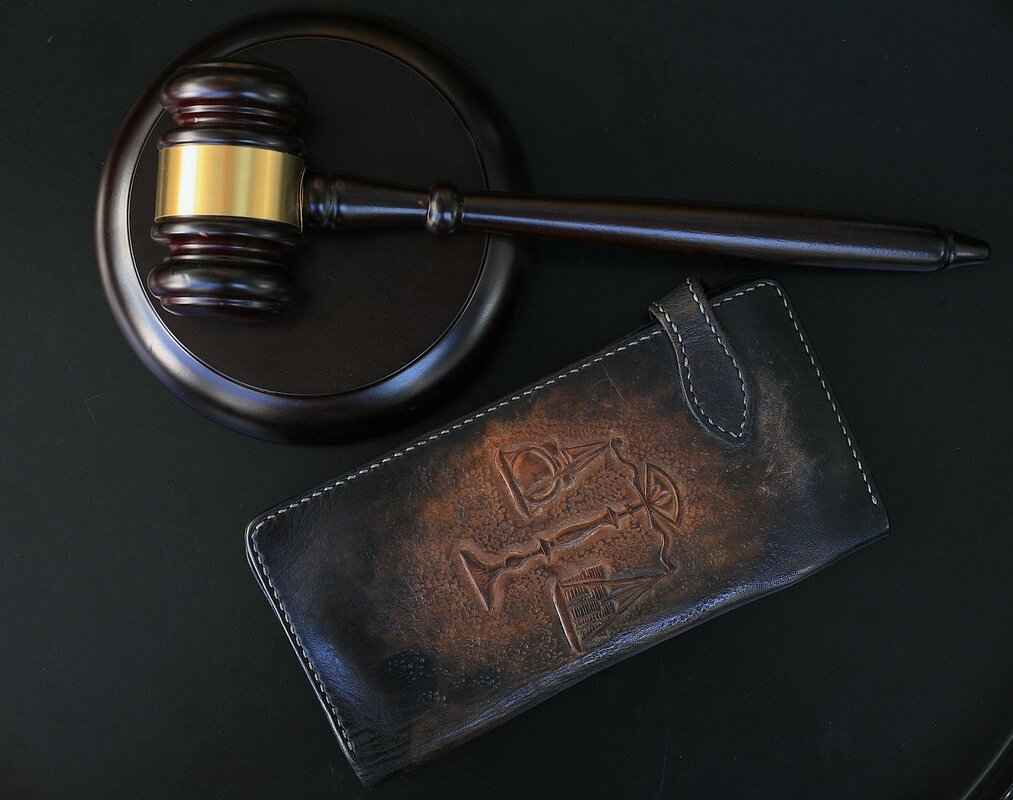
Rules of Evidence
The serve as a fundamental framework in the judicial process, dictating what information can be presented during court proceedings. These rules are crucial in maintaining the integrity of the legal system, ensuring that only relevant and admissible evidence is considered. Understanding these rules is essential for attorneys, witnesses, and anyone involved in legal proceedings.
The are a set of legal standards that govern the admissibility of evidence in court. They are designed to ensure that the information presented is not only relevant but also reliable. These rules help protect the rights of individuals while allowing the judicial system to function effectively.
- Relevance: Evidence must be directly related to the case at hand. Irrelevant information can lead to confusion and misinterpretation.
- Admissibility: Only evidence that meets certain criteria can be admitted in court. This includes considerations of reliability and legality.
- Hearsay Rule: Generally, hearsay—statements made outside of court—is inadmissible unless it falls under specific exceptions.
There are several types of evidence recognized by the courts, including:
- Documentary Evidence: Written documents, photographs, and digital records.
- Testimonial Evidence: Statements made by witnesses under oath.
- Physical Evidence: Tangible items presented in court, such as weapons or clothing.
Admissibility is a critical aspect of the . Attorneys must ensure that the evidence they present meets the legal standards set forth by these rules. If evidence is deemed inadmissible, it can severely weaken a case. Therefore, thorough preparation and understanding of these rules are essential for effective litigation.
Attorneys often face challenges when presenting evidence. They must navigate complex legal standards and anticipate objections from opposing counsel. Common challenges include:
- Objections: Opposing counsel may object to the admissibility of evidence, requiring the judge to make a ruling.
- Prejudicial Evidence: Evidence that may unfairly sway the jury’s opinion is often challenged.
- Expert Testimony: The qualifications of expert witnesses can be questioned, impacting the weight of their testimony.
To navigate the complexities of the , attorneys can employ various strategies:
- Pre-Trial Motions: Filing motions to determine the admissibility of evidence before the trial begins can streamline the process.
- Clear Documentation: Maintaining thorough and organized records helps establish the foundation for admissibility.
- Expert Preparation: Preparing witnesses, especially experts, for the scrutiny they may face during cross-examination can bolster their credibility.
In summary, the are essential to the legal process, ensuring that only relevant and admissible information is presented in court. Understanding these rules not only aids attorneys in effectively presenting their cases but also protects the rights of all parties involved. As the legal landscape continues to evolve, staying informed about these rules is paramount for anyone engaged in the judicial system.
Objections and Challenges
In the intricate world of courtroom proceedings, objections and challenges play a critical role in shaping the trajectory of witness questioning. These legal tools are essential for attorneys to safeguard their clients’ interests and ensure that the evidence presented is both relevant and admissible. Understanding how objections function and their implications can provide valuable insights into the dynamics of a trial.
When attorneys raise objections during witness questioning, they are essentially challenging the admissibility of specific questions or answers. This action can significantly influence the flow of testimony and the jury’s perception of the evidence being presented. Common grounds for objections include irrelevance, leading questions, and hearsay.
- Relevance: An attorney may object if a question does not pertain to the case at hand, arguing that it distracts from the core issues.
- Leading Questions: During direct examination, attorneys may object to questions that suggest their own answers, which can skew the witness’s testimony.
- Hearsay: This objection is raised when a witness attempts to testify about statements made by someone else, which may not be admissible in court.
Each of these objections serves a distinct purpose, ensuring that the testimony remains focused and credible. When an objection is sustained by the judge, it can halt the questioning momentarily, allowing attorneys to clarify their positions and possibly reframe their questions. This interruption can impact the jury’s perception, as it may highlight areas of uncertainty or contention within the testimony.
Objections can create a dynamic environment in the courtroom. They not only affect the flow of testimony but also influence how jurors perceive the credibility of the witness. For instance, if an attorney frequently objects to questions directed at a witness, jurors may begin to question the reliability of that witness’s testimony. Conversely, a well-placed objection can reinforce the strength of a case, showcasing an attorney’s diligence in protecting their client’s rights.
Effective attorneys are adept at managing objections and challenges. They develop strategies to anticipate potential objections from opposing counsel and prepare to counter them. This preparation involves a deep understanding of the rules of evidence and the specific legal standards that govern witness questioning.
- Thorough Preparation: Attorneys must prepare their witnesses for the types of questions they may face, ensuring they understand the courtroom environment and the significance of their testimony.
- Mock Trials: Conducting mock trials can help attorneys and witnesses practice navigating objections, improving their performance under pressure.
- Clear Communication: Attorneys should communicate effectively with their witnesses, guiding them on how to respond to challenging questions while maintaining composure.
Furthermore, understanding the judge’s tendencies regarding objections can provide attorneys with a strategic advantage. Familiarity with the judge’s preferences allows attorneys to tailor their questioning style and anticipate potential rulings on objections.
In summary, objections and challenges are vital components of witness questioning in court. They not only protect the integrity of the judicial process but also shape the narrative presented to the jury. By mastering the art of objections, attorneys can enhance their effectiveness in the courtroom, ensuring that their clients receive a fair trial based on credible and relevant testimony.
Impact of Technology on Witness Testimony
In recent years, the courtroom has witnessed a profound transformation due to the rapid advancements in technology. These innovations are not only changing how evidence is presented but also significantly altering the methods by which witness testimony is gathered and evaluated. As the legal landscape evolves, understanding the implications of these technological advancements is crucial for legal professionals, jurors, and the public alike.
Video Testimonies
One of the most significant developments in courtroom procedures is the use of video testimonies. This method allows witnesses to provide their accounts through recorded video, which can be played back during trials. The ability to observe a witness’s body language and demeanor adds a layer of depth to the testimony that traditional verbal accounts may lack. Jurors can assess credibility not just through words but through non-verbal cues, which can greatly influence their perceptions.
Digital Evidence Integration
Alongside video testimonies, the integration of digital evidence has become increasingly common. Emails, text messages, social media posts, and other forms of digital communication can serve as powerful supplements to witness accounts. This evidence provides context and can corroborate or contradict what a witness claims, making the overall narrative more robust. For example, a witness’s statement about their whereabouts can be substantiated with location data from their smartphone or social media check-ins.
Virtual Reality and Simulations
Another innovative approach is the use of virtual reality (VR) and simulations to recreate events as they occurred. This technology allows jurors to immerse themselves in a virtual environment that replicates the scene of the incident. By experiencing the context firsthand, jurors can better understand the circumstances surrounding the testimony, enhancing their ability to assess the validity of the witness’s claims.
Remote Testimony
The COVID-19 pandemic accelerated the adoption of remote testimony, enabling witnesses to provide their accounts via video conferencing tools. This method not only ensures the safety of all parties involved but also increases accessibility for witnesses who may have difficulty attending court in person. However, it raises questions about the potential impact on witness credibility and the ability of jurors to gauge authenticity when the interaction is mediated by technology.
Artificial Intelligence in Evidence Analysis
Artificial intelligence (AI) is also beginning to play a role in analyzing witness testimony. AI tools can assist attorneys in identifying patterns or inconsistencies in witness statements, helping to prepare for cross-examinations. Moreover, AI can analyze large volumes of data quickly, providing insights that can strengthen a case.
Challenges and Ethical Considerations
While technology offers numerous benefits, it also poses challenges and ethical dilemmas. The reliance on digital platforms raises concerns about data security and the potential for tampering. Additionally, the use of technology can inadvertently introduce biases, particularly if jurors are swayed by the presentation rather than the substance of the testimony. Legal professionals must remain vigilant in ensuring that technological tools are used ethically and effectively.
The Future of Witness Testimony
As technology continues to evolve, its impact on witness testimony will likely expand. Legal professionals must adapt to these changes, embracing new tools while also safeguarding the integrity of the judicial process. Ongoing education and training will be essential to ensure that attorneys and judges can effectively navigate this new landscape, ensuring that witness testimony remains a cornerstone of the legal system.
In conclusion, the advancements in technology are reshaping the way witness testimony is presented and questioned in court. By integrating video testimonies, digital evidence, and innovative tools like VR and AI, the legal system can enhance the courtroom experience, providing jurors with a more comprehensive understanding of the facts at hand. However, it is crucial to approach these changes with caution, ensuring that the fundamental principles of justice and fairness are upheld.
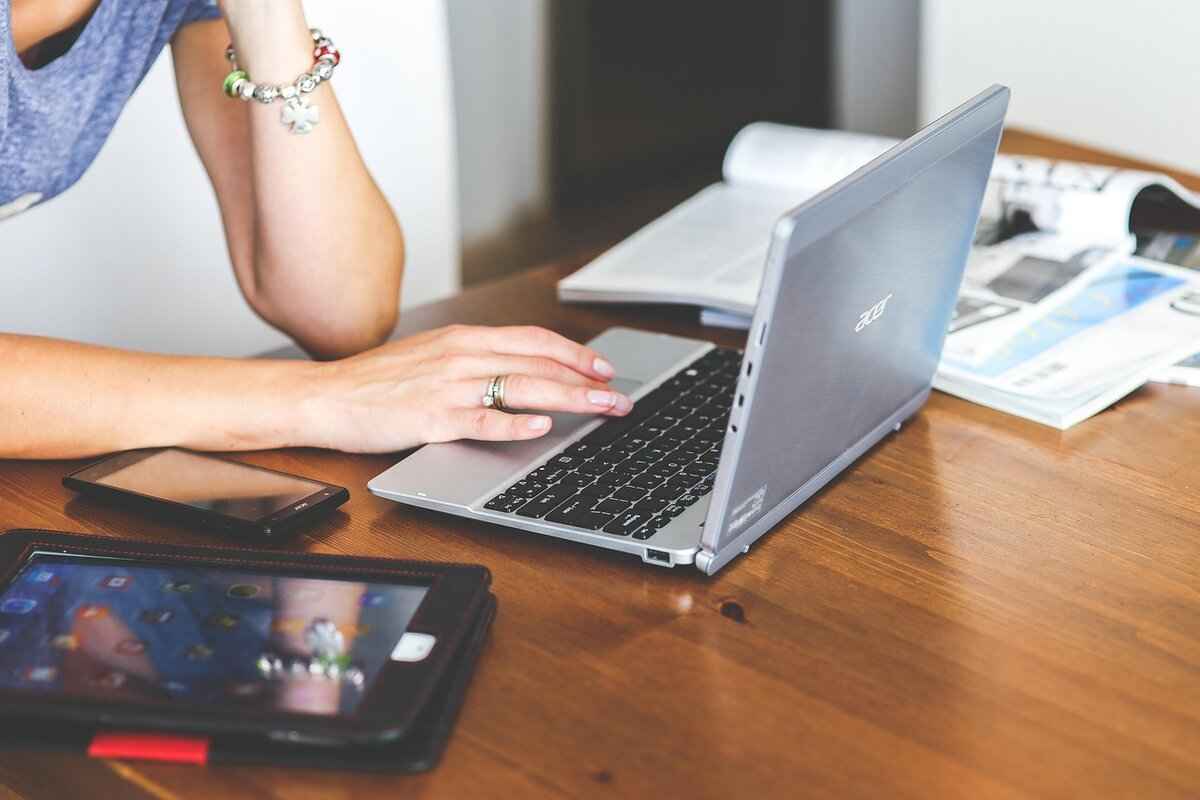
Video Testimonies
In the evolving landscape of the judicial system, have emerged as a significant tool for presenting witness accounts in court. This innovative method not only enhances the clarity of testimonies but also allows jurors to observe the body language and dynamics of witnesses, which can play a critical role in shaping their perceptions of credibility.
Video testimonies involve recording a witness’s statement, which can later be played back during trial proceedings. This medium serves multiple purposes, including:
- Providing a permanent record of the witness’s account.
- Allowing jurors to assess the emotional tone and non-verbal cues of the witness.
- Facilitating the testimony of witnesses who may be unable to attend in person due to health or logistical reasons.
Research indicates that jurors are often influenced by a witness’s body language. When viewing a video testimony, jurors can observe:
- Facial expressions: These can convey sincerity or deceit.
- Posture: An open and confident posture may enhance credibility.
- Eye contact: Frequent eye contact can signal honesty, while avoidance may raise doubts.
These non-verbal signals can significantly affect how jurors interpret the content of the testimony, potentially swaying their opinions on the case’s merits.
The use of video testimonies is governed by specific legal standards, ensuring that they are admissible in court. Key considerations include:
- Authenticity: The recording must be verified to ensure it accurately represents the witness’s statements.
- Relevance: The content must be pertinent to the case at hand.
- Consent: Witnesses must agree to the recording, understanding its use in court.
Utilizing video testimonies offers several advantages:
- Consistency: Recorded testimonies provide a consistent account that can be referenced throughout the trial.
- Accessibility: They make it easier for jurors to revisit the witness’s account, enhancing their understanding.
- Engagement: Visual testimonies can be more engaging than traditional oral testimonies, helping jurors retain information better.
Despite their benefits, video testimonies also present challenges:
- Technical Issues: Poor video or audio quality can hinder the effectiveness of the testimony.
- Misinterpretation: Jurors may misinterpret body language or tone, leading to skewed perceptions.
- Emotional Impact: The emotional weight of a testimony may be amplified in a video format, which can affect juror responses.
As technology continues to advance, the use of video testimonies is likely to become more prevalent. Courts may adopt new methods for integrating video evidence, such as:
- Virtual Reality: Immersive experiences may provide jurors with a deeper understanding of the context surrounding the testimony.
- Interactive Formats: Future technologies could allow jurors to engage with the testimony more dynamically, enhancing their comprehension and retention.
In summary, video testimonies represent a significant advancement in courtroom procedures, offering unique advantages while also presenting certain challenges. As the legal landscape adapts to technological innovations, the role of video testimonies will likely continue to evolve, shaping the way justice is administered.
Digital Evidence
has become an integral part of modern legal proceedings, particularly in enhancing the reliability and depth of witness testimony. In today’s digital age, the proliferation of online communications and social media has transformed how evidence is gathered and presented in court. This article delves into the significance of digital evidence, its role in complementing witness accounts, and the challenges it presents.
Witness testimony is often considered the backbone of many court cases, providing firsthand accounts that can sway juries and judges alike. However, the introduction of digital evidence, such as emails, text messages, and social media posts, adds an additional layer of context that can validate or challenge these testimonies. This intersection of traditional witness accounts and digital evidence creates a more comprehensive narrative, allowing for a clearer understanding of the events in question.
Digital evidence serves to support claims made during questioning and can be pivotal in establishing the credibility of a witness. For instance, if a witness claims to have been at a certain location during a critical event, digital evidence such as geotagged photos or location data from social media can corroborate their statement. This not only strengthens the witness’s account but also provides a factual basis that can be scrutinized and verified.
In many cases, witness testimony may be subjective or influenced by personal biases. Digital evidence can provide objective context that clarifies ambiguous statements. For example, a witness may recall a conversation differently than how it transpired. Emails or messages exchanged between parties can serve as a reference point, allowing attorneys and juries to assess the accuracy of a witness’s recollection.
While digital evidence can greatly enhance the judicial process, it also presents certain challenges. The admissibility of digital evidence can be contested, and there are legal standards that govern how such evidence can be obtained and presented. Issues of privacy, data integrity, and potential tampering must be considered, as they can impact the weight given to this evidence in court.
- Thorough Investigation: Attorneys should conduct comprehensive investigations to gather all relevant digital evidence that may support their case.
- Chain of Custody: Maintaining a clear chain of custody for digital evidence is crucial to ensure its integrity and admissibility in court.
- Expert Testimony: In some cases, it may be beneficial to bring in digital forensics experts to explain the significance and reliability of the evidence.
In conclusion, the integration of digital evidence into witness testimony represents a significant evolution in the legal landscape. By complementing and supporting witness accounts, digital evidence not only enhances the reliability of testimonies but also offers a more nuanced understanding of the facts at hand. As technology continues to evolve, so too will the methods by which evidence is collected and analyzed, making it imperative for legal professionals to stay informed and adaptable.
Challenges in Questioning Witnesses
Questioning witnesses in court is a critical aspect of the legal process, but it is not without its challenges. Attorneys must navigate various obstacles to ensure that the testimony provided is both reliable and impactful. This section delves into the complexities faced during witness questioning, highlighting key issues such as memory reliability, bias, and emotional distress.
One of the foremost challenges in questioning witnesses is the reliability of memory. Human memory is inherently fallible, and witnesses may struggle to recall details accurately due to the passage of time or the stress of the situation. This can lead to inconsistencies in their testimony, which may undermine the credibility of their statements. Attorneys must be adept at recognizing when a witness is unsure or confused and should employ techniques to help clarify their recollections.
- Leading Questions: These can help guide witnesses to recall specific details without suggesting a false narrative.
- Reinforcement: Attorneys may use prior statements or evidence to jog the witness’s memory, ensuring that their testimony aligns with established facts.
Witnesses may also bring their own biases and perceptions into the courtroom, which can distort their testimony. Personal beliefs, relationships with parties involved, or even cultural backgrounds can influence how a witness interprets events. Attorneys must be vigilant in identifying potential biases and addressing them during questioning.
- Establishing Context: Attorneys can ask questions that provide context to the witness’s perspective, helping to clarify their motivations and biases.
- Cross-Examination: This stage is crucial for revealing any potential biases that may affect the witness’s credibility.
Witnesses may experience emotional distress when recounting traumatic events, which can affect their ability to provide coherent and accurate testimony. Attorneys must approach questioning with sensitivity, ensuring that witnesses feel comfortable and supported. This is essential for eliciting truthful and comprehensive responses.
- Creating a Safe Environment: Attorneys should strive to create a non-threatening atmosphere, allowing witnesses to express themselves freely.
- Using Empathy: A compassionate approach can help witnesses feel understood, which may lead to more reliable testimony.
In addition to the psychological challenges, attorneys must also navigate various legal and ethical considerations during witness questioning. The rules of evidence dictate what can be asked and how witnesses should be treated. Attorneys must be well-versed in these regulations to avoid jeopardizing their case.
- Admissibility: Questions must adhere to legal standards to be admissible in court, ensuring that only relevant information is presented.
- Respecting Witness Rights: Attorneys must ensure that witnesses are treated with respect and dignity, safeguarding their rights throughout the questioning process.
To successfully navigate these challenges, attorneys can employ several strategies:
- Thorough Preparation: Preparing witnesses for the types of questions they will face can significantly improve the quality of their testimony.
- Mock Trials: Conducting mock trials allows witnesses to practice their testimony in a controlled environment, enhancing their confidence and performance.
- Active Listening: Attorneys should practice active listening during testimony, allowing them to respond effectively to unexpected developments.
In conclusion, questioning witnesses is fraught with challenges that require a nuanced understanding of human behavior and the legal landscape. By addressing issues of memory reliability, bias, emotional distress, and adhering to legal standards, attorneys can enhance the effectiveness of witness testimony, ultimately contributing to the pursuit of justice.
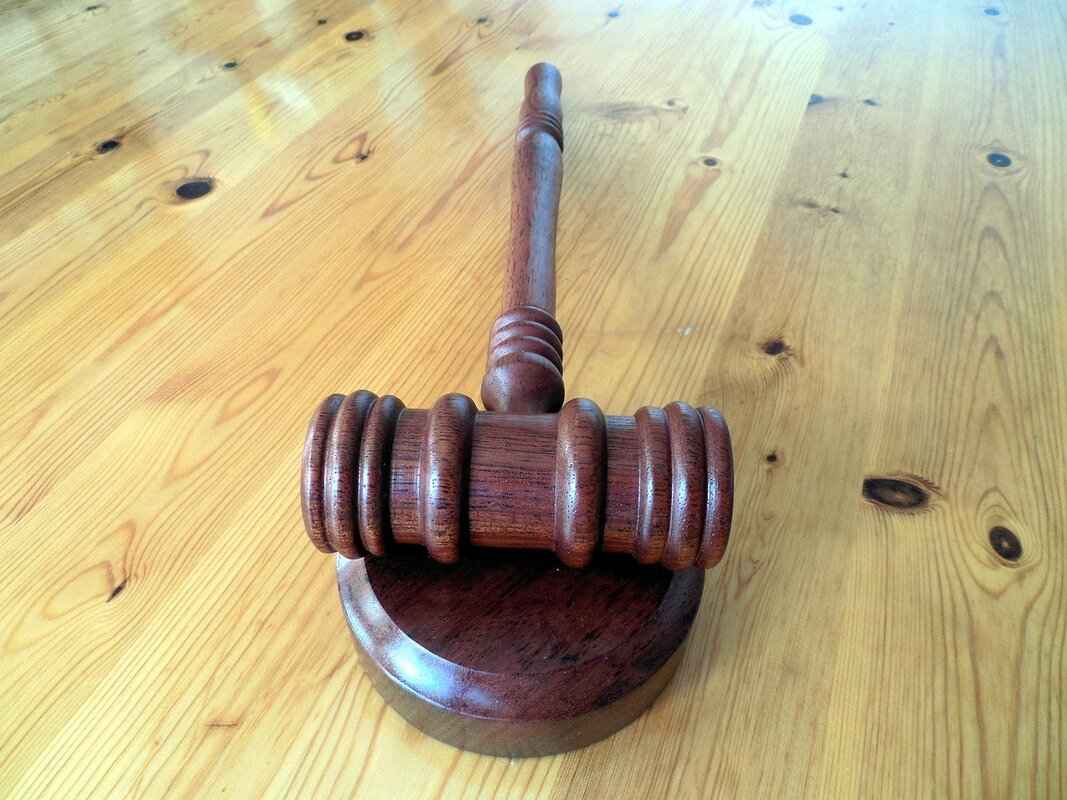
Memory Reliability
is a critical factor in the judicial process, particularly when it comes to witness testimony. As an experienced attorney, it is essential to understand that witnesses may struggle with the accuracy of their memories, which can lead to inconsistencies in their statements during court proceedings. This article delves into the complexities of memory reliability, the implications for attorneys, and strategies to address these challenges effectively.
Memory is not a perfect recording of events; rather, it is a reconstructive process influenced by various factors. Witnesses may misremember details due to the passage of time, stress, or the way questions are posed during testimony. Such memory distortions can significantly impact the reliability of their accounts, making it imperative for attorneys to approach witness questioning with care.
- Time Delay: The longer the period between the event and the testimony, the more likely witnesses are to forget or misinterpret details.
- Stress and Trauma: High-stress situations can impair memory formation and retrieval, leading to fragmented recollections.
- Leading Questions: The way questions are framed can influence a witness’s memory recall, often resulting in altered or biased responses.
Attorneys must be prepared to confront memory reliability issues head-on. Here are some strategies:
- Thorough Preparation: Familiarizing witnesses with the details of their testimony can help them recall facts more accurately. This includes reviewing case materials and discussing the timeline of events.
- Utilizing Expert Testimony: In some cases, engaging a psychologist or memory expert can help explain the complexities of memory to the jury, providing context for any inconsistencies.
- Employing Strategic Questioning: During cross-examination, attorneys can use specific techniques to highlight inconsistencies, such as asking open-ended questions that encourage detailed responses.
In cases where memory reliability is a significant concern, the inclusion of a memory expert can be invaluable. These professionals can elucidate how memory works, the factors that can distort it, and the implications for eyewitness testimony. Their insights can help juries understand the potential pitfalls of relying solely on human recollection.
The legal system recognizes the potential for memory inaccuracies, which is why the rules of evidence govern how testimony is presented. Attorneys must be adept at navigating these rules, ensuring that any testimony provided is both relevant and credible. Moreover, they should be prepared to challenge the admissibility of testimony that may be compromised by memory issues.
Memory reliability remains a complex and often contentious issue in courtrooms. As attorneys, it is crucial to understand the factors that can affect a witness’s recollection and to adopt effective strategies to address these challenges. By doing so, legal professionals can better advocate for their clients and ensure that justice is served based on the most accurate and reliable testimony available.
Emotional Factors
In the realm of legal proceedings, the emotional state of a witness can significantly influence their testimony. Understanding the complex interplay between emotions and witness responses is crucial for attorneys as they prepare for questioning. This section delves into the emotional factors that can affect how witnesses recall and relay information in court.
When witnesses are called to testify, they often face a range of emotions, including nervousness, fear, and anxiety. These feelings can stem from the high-pressure environment of the courtroom, the weight of the case, or personal stakes involved in the testimony. For instance, a witness may feel overwhelmed if they are recounting traumatic events, which can lead to inaccurate recollections or hesitations in their responses.
To mitigate these emotional challenges, attorneys must approach questioning with sensitivity. Creating a comfortable atmosphere is essential for eliciting accurate and reliable testimony. Here are some effective strategies:
- Establish Rapport: Building a connection with the witness can help ease their nerves. Simple gestures, such as a warm greeting or a reassuring tone, can make a significant difference.
- Use Empathy: Acknowledging the emotional difficulty of the situation can help witnesses feel understood and supported. Statements like, “I appreciate how challenging this must be for you,” can foster a more open dialogue.
- Provide Clear Instructions: Clearly explaining the process and what to expect can help alleviate anxiety. Witnesses who know what to anticipate are often more at ease during questioning.
Additionally, attorneys should be mindful of the timing and pacing of their questions. Rapid-fire questioning can exacerbate a witness’s stress, leading to confusion or misstatements. Instead, allowing pauses for the witness to collect their thoughts can enhance the clarity and accuracy of their responses.
Moreover, attorneys must also consider the potential for bias stemming from emotional states. For example, a witness who feels a strong emotional attachment to one party in the case may unconsciously skew their testimony to favor that individual. This bias can be subtle yet impactful, making it essential for attorneys to remain vigilant during both direct and cross-examination.
Incorporating mock trials as part of witness preparation can also help address emotional factors. Simulating the courtroom experience allows witnesses to practice their testimony in a controlled environment, reducing anxiety and building confidence. This practice can lead to more composed and coherent testimonies during actual court proceedings.
Ultimately, the emotional state of witnesses is a critical component of their testimony. Attorneys who recognize and address these factors can significantly enhance the quality of witness responses. By fostering a supportive environment and employing effective questioning techniques, legal professionals can help ensure that witnesses provide the most accurate and truthful accounts possible.
Frequently Asked Questions
- What is the role of witnesses in a court case?
Witnesses provide essential testimony that can significantly influence the outcome of a trial. Their firsthand accounts help establish facts and context, making them a vital part of the judicial process.
- What are the different types of witnesses?
There are several types of witnesses, including fact witnesses who testify about their direct observations, expert witnesses who offer specialized knowledge, and character witnesses who vouch for a person’s character.
- What is the difference between direct examination and cross-examination?
Direct examination is when the attorney who called the witness asks questions to elicit favorable testimony. In contrast, cross-examination allows opposing counsel to challenge the witness’s statements, testing their reliability and consistency.
- How can attorneys prepare witnesses for questioning?
Attorneys can prepare witnesses by explaining courtroom procedures, discussing potential questions they may face, and conducting mock trials to build confidence and improve performance.
- What legal standards govern witness questioning?
Legal standards ensure that witnesses’ rights are protected during questioning. The rules of evidence dictate what can be asked, ensuring that only relevant and admissible information is presented in court.

